This is the fifth and final post in a series based upon Jordan Peterson's book Maps of Meaning, published in 1999 after 17 years of research and writing. It is rich in description and insight with many references and quotations from original sources. Reading it I began to copy passages that struck me as especially lucid and pertinent. Those paragraphs of his text are provided below in italics as excerpts selected to explain five themes emerging in my reflections while pondering his book. Cosmic Dichotomy: Peterson's Pearls (1) provides an overview explaining why this is important to me and perhaps to others.
[Note: I use the word "cosmic" since each individual's world is at risk, and as we see in the agitation over climate change, entire social groups can also fear for their collective world.]
Jordan Peterson on Cosmic Rebirth (Excerpts from Maps of Meaning: The Architecture of Belief Title is link to pdf)
Ideologies may be regarded as incomplete myths—as partial stories, whose compelling nature is a consequence of the appropriation of mythological ideas. The philosophy attributing individual evil to the pathology of social force constitutes one such partial story. Although society, the Great Father, has a tyrannical aspect, he also shelters, protects, trains and disciplines the developing individual—and places necessary constraints on his thought, emotion and behavior.
Subjugation to lawful authority might more reasonably be considered in light of the metaphor of the apprenticeship. Childhood dependency must be replaced by group membership, prior to the development of full maturity. Such membership provides society with another individual to utilize as a "tool," and provides the maturing but still vulnerable individual with necessary protection (with a group-fostered "identity"). The capacity to abide by social rules, regardless of the specifics of the discipline, can therefore be regarded as a necessary transitional stage in the movement from childhood to adulthood.
Discipline should therefore be regarded as a skill that may be developed through adherence to strict ritual, or by immersion within a strict belief system or hierarchy of values. Once such discipline has been attained, it may escape the bounds of its developmental precursor. It is in this manner that true freedom is attained.
Apprenticeship is necessary, but should not on that account be glamorized. Dogmatic systems make harsh and unreasonable masters. Systems of belief and moral action—and those people who are identified with them—are concerned above all with self-maintenance and preservation of predictability and order. The (necessarily) conservative tendencies of great systems makes them tyrannical, and more than willing to crush the spirit of those they "serve." Apprenticeship is a precursor to freedom, however, and nothing necessary and worthwhile is without danger.

We are all familiar with the story of benevolent nature, threatened by the rapacious forces of the corrupt individual and the society of the machine. The plot is solid, the characters believable, but Mother Nature is also malarial mosquitoes, parasitical worms, cancer and Sudden Infant Death Syndrome. The story of peaceful and orderly tradition, undermined by the incautious and decadent (with the ever-present threat of chaos lurking in the background) is also familiar, and compelling, and true—except that the forces of tradition, however protective, tend to be blind, and to concern themselves more with their own stability than with the well-being of those subject to them.
These stories are all ideologies (and there are many more of them). Ideologies are attractive, not least to the educated modern mind—credulous, despite its skepticism— particularly if those who embody or otherwise promote them allow the listener every opportunity to identify with the creative and positive characters of the story, and to deny their association with the negative. Ideologies are powerful and dangerous. Their power stems from their incomplete but effective appropriation of mythological ideas. Their danger stems from their attractiveness, in combination with their incompleteness. Ideologies tell only part of the story, but tell that part as if it were complete. This means that they do not take into account vast domains of the world. It is incautious to act in the world as if only a set of its constituent elements exist. The ignored elements conspire, so to speak, as a consequence of their repression, and make their existence known, inevitably, in some undesirable manner.
Anyway, the fervent hope of every undisciplined person (even an undisciplined genius) is that his current worthlessness and stupidity is someone else's fault. If—in the best of cases—it is society's fault, then society can be made to pay. This sleight-of-hand maneuver transforms the undisciplined into the admirable rebel, at least in his own eyes, and allows him to seek unjustified revenge in the disguise of the revolutionary hero. A more absurd parody of heroic behavior can hardly be imagined.
The maturing individual necessarily (tragically, heroically) expands past the domain of paradisal maternal protection, in the course of development; necessarily attains an apprehension whose desire for danger and need for life exceeds the capability of maternal shelter. This means that the growing child eventually comes to face problems—how to get along with peers in peer-only play groups; how to select a mate from among a myriad of potential mates—that cannot be solved (indeed, may be made more difficult) by involvement of the beneficial maternal.
A thirteen-year-old cannot use a seven-year-old's personality—no matter how healthy—to solve the problems endemic to adolescence. The group steps in—most evidently, at the point of adolescence—and provides "permeable" protective shelter to the child too old for the mother but not old enough to stand alone. The universally disseminated rituals of initiation—induced "spiritual" death and subsequent rebirth—catalyzes the development of adult personality; follows the fundamental pattern of the cyclic, circular cosmogonic myth of the way.
Ritual initiation, for example—a ubiquitous formal feature of pre-experimental culture—takes place at or about the onset of puberty, when it is critical for further psychological development and continued tribal security that boys transcend their dependency upon their mothers. This separation often takes place under purposefully frightening and violent conditions. In the general initation pattern, the men, acting as a unit (as the embodiment of social history), separate the initiates from their mothers, who offer a certain amount of more or less dramatized resistance and some genuine sorrow (at the "death" of their children).
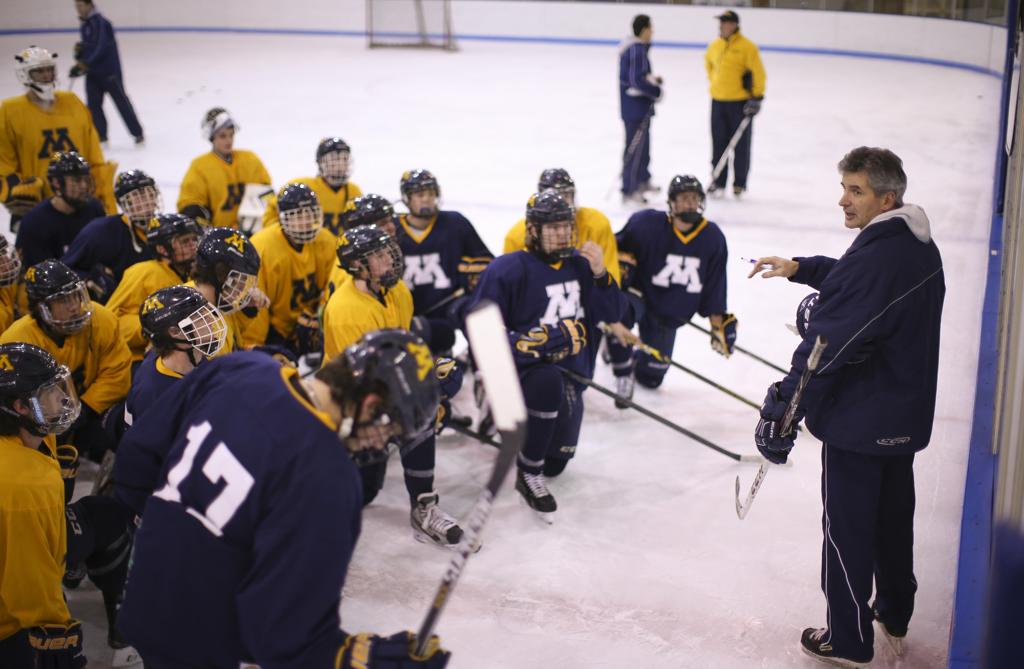
When the rite is successfully completed, the initiated are no longer children, dependent upon the arbitrary beneficience of nature—in the guise of their mothers—but are members of the tribe of men, active standard-bearers of their particular culture, who have had their previously personality destroyed, so to speak, by fire. They have successfully faced the worst trial they are likely ever to encounter in their lives.
That new environment is the society of men, where women are sexual partners and equals instead of sources of dependent comfort; where the provision of food and shelter is a responsibility, and not a given; where security—final authority, in the form of parent—no longer exists. As the childhood "personality" is destroyed, the adult personality—a manifestation of transmitted culture—is inculcated.

Groups are individuals, uniform in their acceptance of a collective historically determined behavioral pattern and schema of value. Internalization of this pattern, and the description thereof (the myths—and philosophies, in more abstracted cultures—which accompany it), simultaneously produces ability to act in a given (social) environment, to predict the outcomes of such action, and to determine the meaning of general events (meaning inextricably associated with behavioral outcome). Such internalization culminates in the erection of implicit procedural and explicit declarable structures of "personality," which are more or less isomorphic in nature, which simultaneously constitute habit and moral knowledge.
The group is the historical structure that humanity has erected between the individual and the terrible unknown. Intrapsychic representation of culture— establishment of group identity—protects individuals from overwhelming fear of their own experience; from contact with the a priori meaning of things and situations.
The historical structure "protects itself" and its structure in two related manners. First, it inhibits intrinsically rewarding but "antisocial" behaviors (those which might upset the stability of the group culture) by associating them with certain punishment (or at least with the threat thereof). This punishment might include actual application of undesirable penalties or, more "subtly"—removal of "right to serve as recognized representative of the social structure."

University of Kentucky Graduating Dentists, Class of 2018
The culturally-determined historical structure protects and maintains itself secondly by actively promoting individual participation in behavioral strategies that satisfy individual demand, and that simultaneously increase the stability of the group. The socially constructed way of a profession, for example, allows the individual who incarnates that profession opportunity for meaningful activity in a manner that supports or at least does not undermine the stability of the historically determined structure which regulates the function of his or her threat-response system. Adoption of a socially sanctioned "professional personality" therefore provides the initiated and identified individual with peer-approved opportunity for intrinsic goal-derived pleasure, and with relative freedom from punishment, shame and guilt.
The construction of a successful group, the most difficult of feats, means establishment of a society composed of individuals who act in their own interest (at least enough to render their life bearable) and who, in doing so, simultaneously maintain and advance their culture. The "demand to satisfy, protect and adapt, individually and socially"—and to do so over vast and variable stretches of time—places severe intrinsic constraints on the manner in which successful human societies can operate. It might be said that such constraints provide universal boundaries for acceptable human morality.

Balinese Trance Dance performed by male choir.
A culture is, to a large degree, a shared moral code, and deviations from that code are generally easily identified, at least post-hoc. It is still the case, however, that description of the domain of morality tends to exceed the capability of declarative thought, and that the nature of much of what we think of as moral behavior is still, therefore, embedded in unconscious procedure. As a consequence, it is easy for us to become confused about the nature of morality, and to draw inappropriate, untimely and dangerous "fixed" conclusions.
The conservative worships his culture, appropriately, as the creation of that which deserves primary allegiance, remembrance and respect. This creation is the concrete solution to the problem of adaptation: "how to behave?" (and how can that be represented and communicated?). It is very easy, in consequence, to err in attribution of value, and to worship the specific solution itself, rather than the source of that solution.
As such, a given cultural structure necessarily must meet a number of stringent and severely constrained requirements: (1) it must be self-maintaining (in that it promotes activities that allow it to retain its central form); (2) it must be sufficiently flexible to allow for constant adaptation to constantly shifting environmental circumstances; and (3) it must acquire the allegiance of the individuals who compose it. . . The second requirement—flexibility—is more difficult to fulfill, particularly in combination with the first (self-maintenance). A culture must promote activity that supports itself, but must simultaneously allow for enough innovation so that essentially unpredictable alteration in "environmental" circumstance can be met with appropriate change in behavioral activity. Cultures that attempt to maintain themselves through promotion of absolute adherence to traditional principles tend rapidly to fail the second requirement, and to collapse precipitously. Cultures that allow for unrestricted change, by contrast, tend to fail the first, and collapse equally rapidly. The third requirement (allegiance of the populace) might be considered a prerequisite for the first two.

Freemasons celebrate 150th anniversary of the Grand Lodge in Newfoundland and Labrador.
Every culture maintains certain key beliefs that are centrally important to that culture, upon which all secondary beliefs are predicated. These key beliefs cannot be easily given up, because if they are, everything falls, and the unknown once again rules. Western morality and behavior, for example, are predicated on the assumption that every individual is sacred. This belief was already extant in its nascent form among the ancient Egyptians, and provides the very cornerstone of Judeo-Christian civilization. Successful challenge to this idea would invalidate the actions and goals of the Western individual; would destroy the Western dominance hierarchy, the social context for individual action. In the absence of this central assumption, the body of Western law—formalized myth, codified morality—erodes and falls. There are no individual rights, no individual value— and the foundation of the Western social (and psychological) structure dissolves. The Second World War and Cold War were fought largely to eliminate such a challenge.
The group provides the protective structure—conditional meaning and behavioral pattern—that enables the individual to cast off the dependence of childhood, to make the transition from the maternal to the social, patriarchal world. The group is not the individual, however. Psychological development that ceases with group identification—held up as the highest attainable good by every ideologue—severely constricts individual and social potential, and dooms the group, inevitably, to sudden and catastrophic dissolution. Failure to transcend group identification is, in the final analysis, as pathological as failure to leave childhood.

Movement from the group to the individual—like that from childhood to group—follows the archetypal transformative pattern of the heroic (paradise, breach, fall, redemption; stability, incorporation, dissolution, reconstruction). Such transformation must be undertaken voluntarily, through conscious exposure to the unknown—although it may be catalyzed by sufficiently unique or traumatic experience. Failure to initiate and/or successfully complete the process of secondary maturation heightens risk for intrapsychic and social decadence, and consequent experiential chaos, depression and anxiety (including suicidal ideation), or enhances tendency toward fanaticism, and consequent intrapsychic and group aggression.
The "third mode" of adaptation—alternative to decadence and fascism—is heroic. Heroism is comparatively rare, because it requires voluntary sacrifice of group-fostered certainty, and indefinite acceptance of consequent psychological chaos, attendant upon (re)exposure to the unknown. This is nonetheless the creative path, leading to new discovery or reconfiguration, comprising the living element of culture.
Christ's replies signified transition of morality from reliance on tradition to reliance on individual conscience—from rule of law to rule of spirit—from prohibition to exhortation. To love God means to listen to the voice of truth and to act in accordance with its messages; to love thy neighbour, as thy self. This means, not merely to be pleasant, polite and friendly, but to attribute to the other a value equivalent to the value of the self—which, despite outward appearances, is a representative of God—and to act in consequence of this valuation.
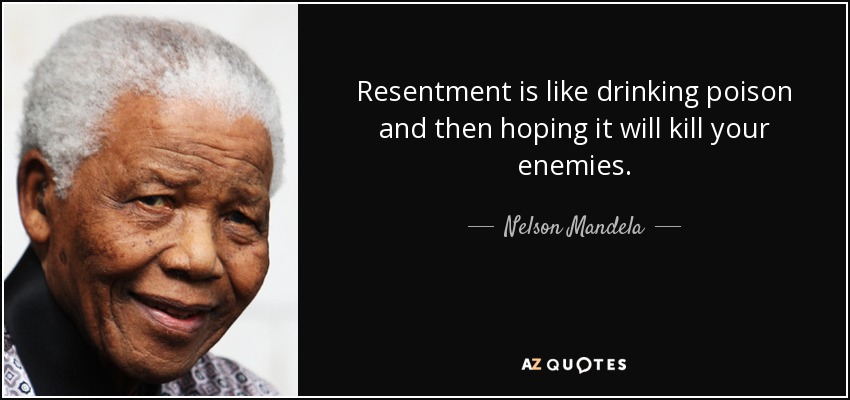
What principle is rule of spirit, rather than law, predicated upon? Respect for the innately heroic nature of man. The "unconscious" archaic man mimics particular adaptive behaviors—integrated, however, into a procedural structure containing all other adaptive behaviors, capable of compelling imitation, and accompanied by episodic/semantic representation, in myth. Pre-experimental cultures regard the act of initial establishment of adaptive behavior as divine first because it follows an archetypal and therefore transpersonal pattern—that governing creative exploration—and second because it compels imitation, and therefore appears possessed of power. All behaviors that change history, and compel imitation, follow the same pattern—that of the divine hero, the embodiment of creative human potential.
Law is a necessary precondition to salvation, so to speak; necessary, but insufficient. Law provides the borders that limit chaos, and allows for the protected maturation of the individual. Law disciplines possibility, and allows the disciplined individual to bring his or her potentialities—those intrapsychic spirits—under voluntary control. The law allows for the application of such potentiality to the task of creative and courageous existence— allows spiritual water controlled flow into the valley of the shadow of death. Law held as absolute, however, puts man in the position of the eternal adolescent, dependent upon the father for every vital decision; removes the responsibility for action from the individual, and therefore prevents him or her from discovering the potential grandeur of the soul. Life without law remains chaotic, affectively intolerable. Life that is pure law becomes sterile, equally unbearable. The domination of chaos or sterility equally breeds murderous resentment and hatred.
Christ said, put truth and regard for the divine in humanity above all else, and everything you need will follow—not everything you think you need, as such thought is fallible, and cannot serve as an accurate guide, but everything actually necessary to render acutely (self) conscious life bearable, without protection of delusion and necessary recourse to deceit, avoidance or suppression, and violence.
Existence characterized by such essence takes place, from the Oriental viewpoint, on the path of meaning, in Tao, balanced on the razor's edge between mythic masculine and mythic feminine—balanced between the potentially stultifying safety of order, and the inherently destructive possibility of chaos. Such existence allows for introduction of sufficiently bearable meaning into blessed security; makes every individual a stalwart guardian of tradition and an intrepid explorer of the unknown; ensures simultaneous advancement and maintenance of stable, dynamic social existence; and places the individual firmly on the path to intrapsychic integrity and spiritual peace.
The late physicist, Professor Wolfgang Pauli, frequently demonstrated the extent to which modern physical sciences are in a way rooted in archetypal ideas. For instance, the idea of causality as formulated by Descartes is responsible for enormous progress in the investigation of light, of biological phenomena, and so on, but that thing which promotes knowledge becomes its prison. Great discoveries in natural sciences are generally due to the appearance of a new archetypal model by which reality can be described; that usually precedes big developments, for there is now a model which enables a much fuller explanation than was hitherto possible.
So science has progressed, but still, any model becomes a cage, for if one comes across phenomena difficult to explain, then instead of being adaptable and saying that the phenomena do not conform to the model and that a new hypothesis must be found, one clings to one's hypotheses with a kind of emotional conviction, and cannot be objective.
The idea of projection—that is, the idea that systems of thought have "unconscious" axioms—is clearly related to the notion of "paradigmatic thinking," as outlined by Kuhn, to wide general acclaim. Jung described the psychological consequences of paradigmatic thinking in great detail as well.
Acceptance of anomalous information brings terror and possibility, revolution and transformation. Rejection of unbearable fact stifles adaptation and strangles life. We choose one path or another at every decision point in our lives, and emerge as the sum total of our choices. In rejecting our errors, we gain short-term security—but throw away our identity with the process that allows us to transcend our weaknesses and tolerate our painfully limited lives.
Our psychology and psychiatry—our "sciences of the mind"—are devoted, at least in theory, to "empirical" evaluation and treatment of mental "disorders." But this is mostly smoke and screen. We are aiming, always, at an ideal. We currently prefer to leave the nature of that ideal "implicit," because that helps us sidestep any number of issues that would immediately become of overwhelming difficulty, if they were clearly apprehended. So we "define" health as that state consisting of an absence of "diseases" or "disorders" and leave it at that—as if the notion of disease or disorder (or of the absence thereof) is not by necessity a medieval concatenation of moral philosophy and empirical description. It is our implicit theory that a state of "non-anxiety" is possible, however—and desirable— that leads us to define dominance by that state as "disordered." The same might be said for depression, for schizophrenia, for personality "disorders," and so on. Lurking in the background is an "implicit" (that is, unconscious) ideal, against which all "insufficient" present states are necessarily and detrimentally compared. We do not know how to make that ideal explicit, either methodologically or practically (that is, without causing immense dissent in the ranks); we know, however, that we must have a concept of "not ideal" in order to begin and to justify "necessary" treatment. Sooner or later, however, we will have to come to terms with the fact that we are in fact attempting to produce the ideal man—and will have to define explicitly what that means. It would be surprising, indeed, if the ideal we come to posit bore no relationship to those constructed painstakingly, over the course of centuries of effort, in the past.
It took thousands of years of cultural development to formulate the twin notions that empirical reality existed (independent of the motivational significance of things) and that it should be systematically studied (and these ideas only emerged, initially, in the complex societies of the Orient and Europe).
The purpose of scientific methodology is, in large part, to separate the empirical facts from the motivational presumption. In the absence of such methodology, the intermingling of the two domains is inevitable.
It is thus that awareness of death, the grim reaper—the terrible face of God—compels us inexorably upwards, toward a consciousness sufficiently heightened to bear the thought of death. The point of our limitations is not suffering; it is existence itself. We have been granted the capacity to voluntarily bear the terrible weight of our mortality. We turn from that capacity and degrade ourselves because we are afraid of responsibility. In this manner, the necessarily tragic preconditions of existence are made intolerable.
It seems to me that it is not the earthquake, the flood or the cancer that makes life unbearable, horrible as those events appear. We seem capable of withstanding natural disaster, even of responding to that disaster in an honorable and decent manner. It is rather the pointless suffering that we inflict upon each other—our evil—that makes life appear corrupt beyond acceptability; that undermines our ability to manifest faith in our central natures.
The truth seems painfully simple—so simple that it is a miracle, of sorts, that it can every be forgotten. Love God, with all thy mind, and all thy acts, and all thy heart. This means, serve truth above all else, and treat your fellow man as if he were yourself—not with the pity that undermines his self-respect, and not with the justice that elevates you above him, but as a divinity, heavily burdened, who could yet see the light.
Who can believe that it is the little choices we make, every day, between good and evil, that turn the world to waste and hope to despair? But it is the case. We see our immense capacity for evil, constantly realized before us, in great things and in small, but can never seem to realize our infinite capacity for good. Who can argue with a Solzhenitsyn when he states: "One man who stops lying can bring down a tyranny"?
Christ said, the kingdom of heaven is spread out upon the earth, but men do not see it. What if it was nothing but our self-deceit, our cowardice, hatred and fear, that pollutes our experience and turns the world into hell? This is a hypothesis, at least—as good as any other, admirable and capable of generating hope. Why can't we make the experiment, and find out if it is true?

It has been almost twelve years since I first grasped the essence of the paradox that lies at the bottom of human motivation for evil: People need their group identification, because that identification protects them, literally, from the terrible forces of the unknown. It is for this reason that every individual who is not decadent will strive to protect his territory, actual and psychological. But the tendency to protect means hatred of the other, and the inevitability of war—and we are now too technologically powerful to engage in war. To allow victory to the other, however—or even continued existence, on his terms—means subjugation, dissolution of protective structure, and exposure to that which is most feared. For me, this meant "damned if you do, damned if you don't": belief systems regulate affect, but conflict between belief systems is inevitable.
The great myths of Christianity—the great myths of the past, in general—no longer speak to the majority of Westerners, who regard themselves as educated. The mythic view of history cannot be credited with reality, from the material, empirical point of view. It is nonetheless the case that all of Western ethics, including those explicitly formalized in Western law, are predicated upon a mythological worldview, which specifically attributes divine status to the individual. The modern individual is therefore in a unique position: he no longer believes that the principles upon which all his behaviors are predicated are valid. This might be considered a second fall, in that the destruction of the Western mythological barrier has re-exposed the essential tragedy of individual existence to view.

It is not the pursuit of empirical truth, however, that has wreaked havoc upon the Christian worldview. It is confusion of empirical fact with moral truth that has proved of great detriment to the latter. This has produced what might be described as a secondary gain, which has played an important role in maintaining the confusion. That gain is abdication of the absolute personal responsibility imposed in consequence of recognition of the divine in man. This responsibility means acceptance of the trials and tribulations associated with expression of unique individuality, as well as respect for such expression in others. Such acceptance, expression and respect requires courage in the absence of certainty, and discipline in the smallest matters.
The root of social and individual psychopathology, the "denial," the "repression" is the lie. The most dangerous lie of all is devoted to denial of individual responsibility—denial of individual divinity. The idea of the divine individual took thousands of years to fully develop, and is still constantly threatened by direct attack and insidious counter-movement. It is based upon realization that the individual is the locus of experience. All that we can know about reality we know through experience. It is therefore simplest to assume that all there is of reality is experience—its being and progressive unfolding. Furthermore, it is the subjective aspect of individuality—of experience—that is divine, not the objective. Man is an animal, from the objective viewpoint, worthy of no more consideration than the opinion and opportunities of the moment dictate. From the mythic viewpoint, however, every individual is unique—is a new set of experiences, a new universe; has been granted the ability to bring something new into being; is capable of participating in the act of creation itself. It is the expression of this capacity for creative action that makes the tragic conditions of life tolerable, bearable—remarkable, miraculous.
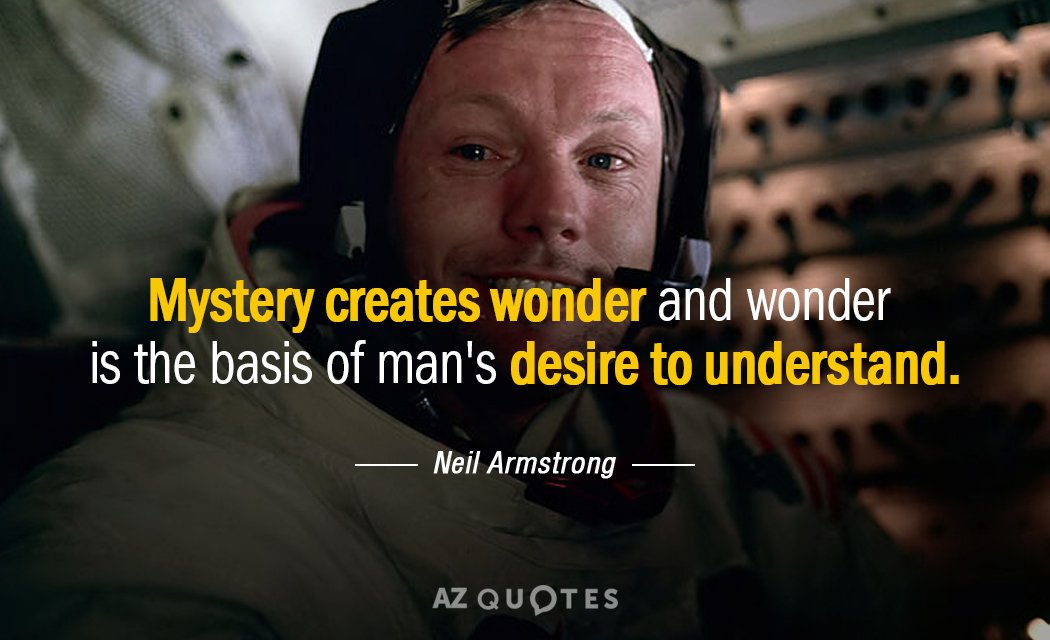
Footnote:
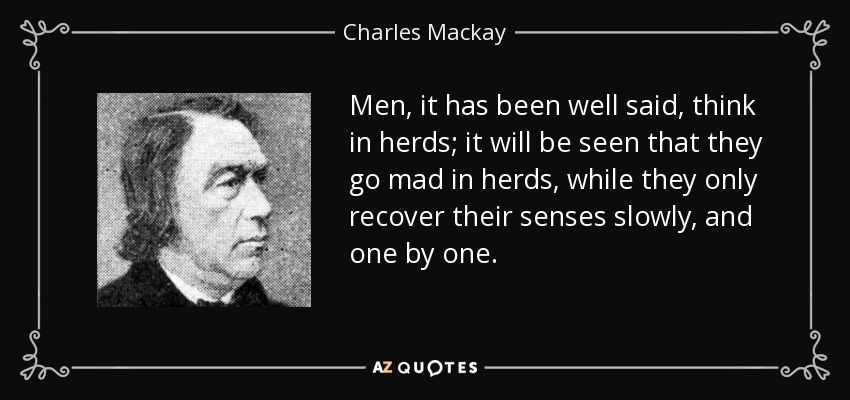
The seminal work on the struggle of individuals to rise above mass delusions was the book Extraordinary Popular Delusions And The Madness Of Crowds by Charles MacKay 1841. Title is link to full pdf text. Excerpts below with my bolds.
In the present state of civilization, society has often shown itself very prone to run a career of folly from the last-mentioned cases. This infatuation has seized upon whole nations in a most extraordinary manner. France, with her Mississippi madness, set the first great example, and was very soon imitated by England with her South Sea Bubble. At an earlier period, Holland made herself still more ridiculous in the eyes of the world, by the frenzy which came over her people for the love of Tulips. Melancholy as all these delusions were in their ultimate results, their history is most amusing. A more ludicrous and yet painful spectacle, than that which Holland presented in the years 1635 and 1636, or France in 1719 and 1720, can hardly be imagined.
Some delusions, though notorious to all the world, have subsisted for ages, flourishing as widely among civilized and polished nations as among the early barbarians with whom they originated, — that of duelling, for instance, and the belief in omens and divination of the future, which seem to defy the progress of knowledge to eradicate entirely from the popular mind. Money, again, has often been a cause of the delusion of multitudes. Sober nations have all at once become desperate gamblers, and risked almost their existence upon the turn of a piece of paper. To trace the history of the most prominent of these delusions is the object of the present pages. Men, it has been well said, think in herds; it will be seen that they go mad in herds, while they only recover their senses slowly, and one by one.

MacKay's study was exhaustive for its time, comprising three volumes;
VOL I. Considered National Delusions, including:
THE MISSISSIPPI SCHEME
THE SOUTH SEA BUBBLE
THE TULIPOMANIA.
RELICS.
MODERN PROPHECIES.
POPULAR ADMIRATION FOR GREAT THIEVES.
INFLUENCE OF POLITICS AND RELIGION ON THE HAIR AND BEARD.
DUELS AND ORDEALS
THE LOVE OF THE MARVELLOUS AND THE DISBELIEF OF THE TRUE.
POPULAR FOLLIES IN GREAT CITIES
THE O.P. MANIA.
THE THUGS, or PHANSIGARS.
VOL. II described Peculiar Follies, including:
THE CRUSADES
THE WITCH MANIA.
THE SLOW POISONERS.
HAUNTED HOUSES.
VOL. III compiled more general popular madnesses under three categories:
BOOK I: Philosophical Delusions, down through history with particular recent attention to Alchemists
BOOK II: Fortune Telling
BOOK III: The Magnetisers, a fad only subsiding when the book was written.
from Climate Change Skeptic Blogs via hj on Inoreader https://ift.tt/2XnPNAn


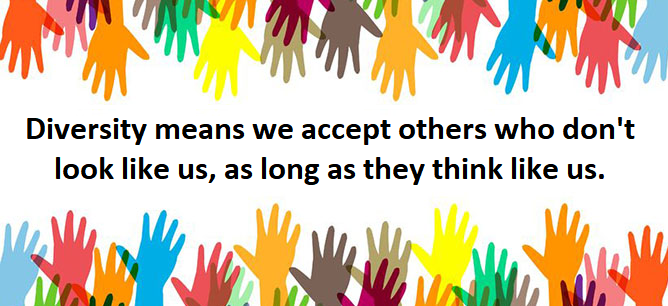


No comments:
Post a Comment